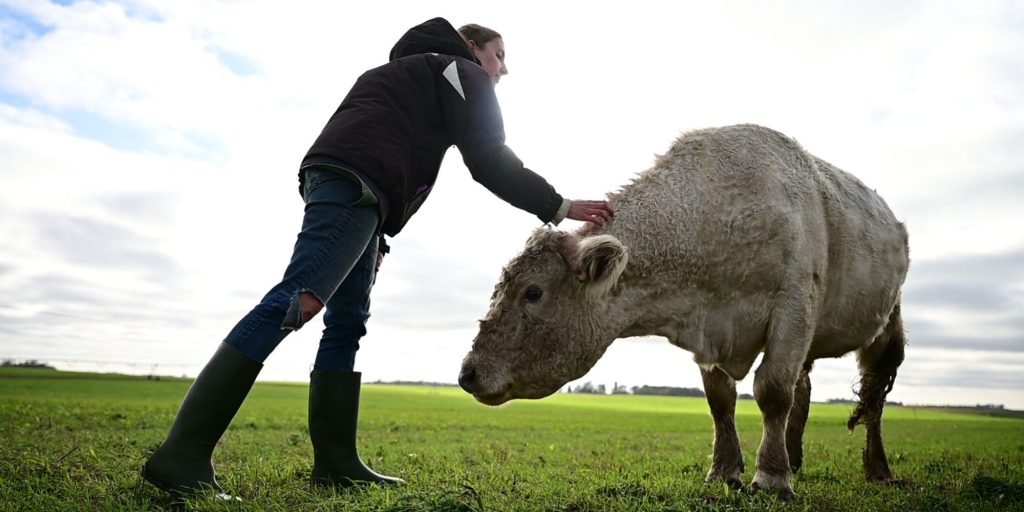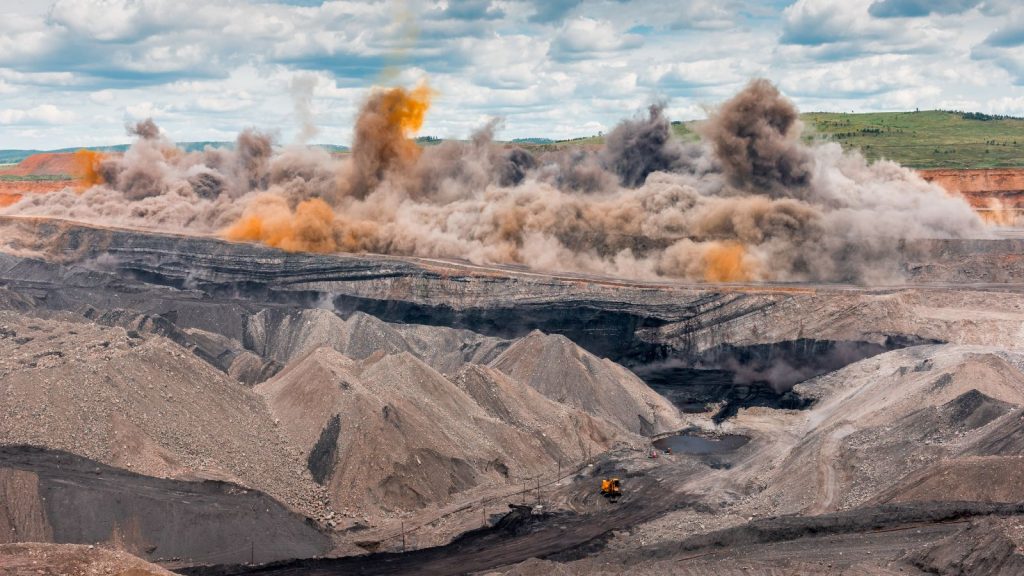Above: an “orange cloud,” toxic gasses sometimes created when blasting overburden in coal strip mines, drifts on the breeze, endangering communities downwind.
WORC members living near coal mines applaud a decision by the Office of Surface Mining to again allow coalfield residents to prompt inspections and enforcement when coal mines violate the law.
On April 4, 2024, the Office of Surface Mining Reclamation and Enforcement (OSMRE) released a finalized Ten Day Notice (TDN) Rule that restored agency procedures for responding to citizen complaints alerting the agency to potential violations at coal mines. The rule is critical to ensuring that residents living near coal mines can report violations and requires state officials to take those complaints seriously.
“When Congress passed the federal strip mine law, [Surface Mining Control and Reclamation Act of 1978 (SMCRA)], they realized that people like me who live near coal mines are a valuable source of information for regulators, and that we must have a way to call on regulators to address violations,” said Lynne Huskinson, a retired coal miner from Gillette, Wyoming, as well as a board member of the Powder River Basin Resource Council and WORC.
Called the “Ten Day Notice rule” because that’s the period of time that OSMRE gives a state agency to decide whether to carry out an investigation and enforcement action in response to a complaint, the finalized rule is designed to reduce burdens on residents to file a complaint, as well as clarify procedures for OSMRE to address alleged violations. This rulemaking comes in response to litigation from coalfield community groups successfully challenging a 2020 Trump administration-era rule that weakened OSMRE’s procedures.
Keep up to date with grassroots organizing in the West with WORC’s newsletter.
Among other shortcomings, the 2020 rule gave the state agencies tasked with watchdogging coal mines unlimited time to review citizen complaints, creating the ability for state agencies to ignore complaints indefinitely, while companies continued violating the law. It also made federal responses to citizen complaints discretionary rather than mandatory, removing the guardrails that forced state agencies to address resident complaints. The 2020 rule essentially eliminated the ability of coalfield citizens to adequately protect themselves and others from coal mines that operated in violation of permit conditions and regulatory standards designated to safeguard public health and safety.
“Our members who are neighbors to coal mines have used the citizen complaint process to notify regulators of violations such as dangerous vibrations and toxic air pollution from blasting, water pollution and loss of water for neighboring homeowners, and insufficient reclamation bonds,” said Huskinson. “Without proper rules, we’ve experienced situations where OSMRE has taken months to respond to citizens’ complaints.”
“For a number of predictable reasons – including insufficient funding and the tendency for State agencies to be protective of local industry – State enforcement has in the past often fallen short of the vigor necessary to assure adequate protection of the environment.”
Text from Surface Mining Control and Reclamation Act of 1978
The final Ten Day Rule restores SMCRA’s intent to treat all citizen complaints as requests for federal inspection, eliminating the requirements that a citizen first notify the state regulator, and then explain why the state’s response is insufficient. This will ensure that OSMRE is consistently in the loop, and state agencies cannot block OSMRE from involvement. It also clarifies that citizens who submit complaints have the right to accompany federal regulators on mine inspections carried out in response to complaints.
“We appreciate OSMRE taking these steps to ensure citizen complaints are handled in a timely and respectful manner and we look forward to stronger oversight and protections from OSMRE in the future,” said Huskinson.
Learn more:
Northern Plains leader testifies to Congress about the need for federal coal leasing reforms
As Coal Plants Close, Colorado Focuses on Just Transition
Addressing The Collapse of the Coal Industry

Yes, I want to help WORC elevate Western voices and hold decision-makers accountable!





